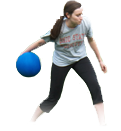
21 Reasons to Workout
It’s a great day to be fit!
We all know that exercise is good for us. Our bodies are designed to be active. You certainly weren’t born sitting on a chair at a computer or on a couch watching TV. When you were young, you ran around all day and never thought about being tired. There is absolutely no reason you cannot still feel that same way!
But because so many of us have jobs that require us to sit all day, our bodies become rigid. As this immobility sets in our muscles and joints begin to ach, when you compounded that with the stress of life, not getting enough sleep and poor eating habits you feel exhausted!
As the General Manager of the Arena District Athletic Club I see how living a healthy active lifestyle can profoundly improve your quality of life. I will be sending out weekly “Healthy Lifestyle fitTIP emails to help inform, educate and hopefully inspire you to make positive changes in how you live your life.
The main incentive that can make you start exercising is overall health improvement. But what exactly can exercise do for you? Did you know almost all chronic diseases are lifestyle related! Here is the list of scientifically proven health benefits the regular exercise brings.
1 Longevity: reduced risk of premature death. People, who are physically active, live longer. Regular exercise reduces the risk of dying prematurely and increases your chances of living longer. It is never late to begin exercising. Regular physical activity provides benefits to men and women of all ages.
2 New brain cells development (neurogenesis). Exercise stimulates the formation of new brain cells (neurons). Also, exercise strengthens connections between those cells. The areas of the brain that are stimulated through long-term exercise are associated with memory and learning. The production of new neurons is associated with improvement in learning and memory.
3 Cognitive and mental function enhancement. Physical activity improves and facilitates cognitive performance, information processing and may delay cognitive impairment and dementia. For instance, older adults who engage in regular physical activity have better performances in tests implying decision-making process, memory and problems solving.
But what about children? Are physically fit kids better suited to compete not only on the ball field, but in the classroom as well? University of Illinois researchers have found that physical activity may enhance the academic achievement of children by improving their attention and working memory skills.
Netherlandish researches found that decline in cognitive functioning is associated with a higher mortality risk.
4 Prevention of cardiovascular disease. Lack of physical activity is one of the major risk factors for cardiovascular diseases. There is a direct relation between physical inactivity and cardiovascular death.
Regular physical activity makes your heart, like any other muscle, stronger. A stronger heart can pump more blood with less effort. Regular exercise also prevents heart disease by lowering blood pressure, increasing good HDL cholesterol that transports fat away from the arteries and back to the liver for processing, reducing levels of bad LDL cholesterol that can form fatty deposits in the arteries and by preventing blood clots.
In a long-term Swedish study women and men who were physically active at least twice a week had a 41% lower risk of developing coronary heart disease (CHD) than those who performed no physical activity.
5 Cholesterol lowering effect. Physical exercise favorably influences blood cholesterol levels by decreasing LDL cholesterol, triglycerides and total cholesterol and increasing HDL cholesterol.
Exercise itself does not “burn off” cholesterol like it can with fat. Physical exercise can positively alter cholesterol metabolism by increasing the production and action of several enzymes in the muscles and liver that function to convert some of the cholesterol to a more favorable form, such as HDL-cholesterol.
6 Prevention and control of type 2 diabetes. Exercise promotes healthy blood sugar levels to prevent or control diabetes. Regular physical activity may improve insulin resistance and glucose tolerance and is highly effective in preventing or delaying the onset of type 2 diabetes in persons with impaired glucose regulation. Exercise also exerts anti-inflammatory effects.
There is strong evidence from randomized controlled studies (e.g. Finnish Diabetes Prevention Study and the Diabetes Prevention Program in the USA) that moderate physical activity combined with weight loss and balanced diet can confer a 50-60% reduction in risk of developing diabetes among those already at high risk.
7 Blood pressure lowering effect and reduced risk of developing hypertension. Low physical activity increases the risk of hypertension. Regular exercise training decreases blood pressure in approximately 75% of hypertensive persons with an average decrease of 11 and 8 Hg mm for systolic and diastolic blood pressure respectively.
All forms of exercise seem to be effective in reducing blood pressure. Aerobic exercise appears to have a slightly greater effect on blood pressure in hypertensive individuals than in individuals without hypertension. Regular exercise training may decrease blood pressure in overweight and obese persons even without changes in body weight. The ways by which exercise can cause a reduction in blood pressure are unclear.
8 Prevention of neoplastic (cancer) diseases. Evidence exists that physical activity may be associated with a low risk of several common forms of cancer, most notably colon and breast cancer. Physical activity has effects on fat tissue, obesity and body fat distribution, as well as immunological, mechanical and hormonal effects, providing a range of possible mechanisms whereby physical activity may reduce cancer risk.
9 Reduced stroke risk. Exercise and physical activity may reduce stroke risk. Research data indicates that moderate and high levels of physical activity may reduce risk of total, ischemic, and hemorrhagic strokes.
People who have good physical function after the age of 40 may lower their risk of stroke by as much as 50 percent compared to people who are not able to climb stairs, kneel, bend, or lift as well, according to research published in the December 11, 2007, issue of Neurology, the medical journal of the American Academy of Neurology.
10 Weight control: effective proven remedy for overweight and obesity. Regular physical activity helps to reach and maintain a healthy weight. (Regular physical activity helps people lose excess weight or stay at a reasonable weight.) Exercise increases metabolism and burns calories. If a person takes in more calories than needed in a day, exercise offsets a caloric overload and controls body weight. It speeds the rate of energy use, resulting in increased metabolism. When metabolism increases through exercise, the person will maintain the faster rate for longer periods of a day.
11 Muscle strength, endurance, and flexibility. Health studies repeatedly show that strength training increases muscle strength and mass and decreases fat tissue.
12 Perfect body and looking better. With perfect body you look better in clothes and you look better naked. Exercise helps reduce body fat by building muscle mass. Both resistance and aerobic exercise improve body composition even without dieting.
13 Bone strength and prevention of osteoporosis. An active lifestyle benefits bone density. Regular weight-bearing exercise promotes bone formation, delays bone loss and may protect against osteoporosis (form of bone loss associated with aging).
14 Strong immune system. Regular moderate exercise seems to have a beneficial effect on the immune function. The findings from some studies support the possibility that exercise may delay immunosenescence (age dependent decline in immune function).
15 Better night sleep: time-proved “Insomnia Rx”. If you suffer from poor sleep daily exercise can make the difference. The natural dip in body temperature five to six hours after exercise may help to fall asleep. Researches from the Stanford University School of Medicine found that regular exercise provide improvement in general quality of sleep, quicker sleep-onset, longer sleep duration and feeling rested in the morning.
16 Longer and more satisfying sex life. Regular exercise maintains or improves sex life. Physical improvements in muscle strength and tone, endurance, body composition and cardiovascular function can all enhance sexual functioning in both men and women. Men who exercise regularly are less likely to have erectile dysfunction and impotence than are men who don’t exercise.
17 Back pain remedy. By increasing muscle strength and endurance and improving flexibility and posture, regular exercise helps to prevent back pain. High quality studies. The research proves that exercise is effective treatment for recurrent low back pain.
18 Effective stress management technique. Exercise stimulates various brain chemicals, which may leave you feeling happier and more relaxed. (Exercise can cause release of chemicals called endorphins into your blood stream. These give you a feeling of happiness and positively affect your overall sense of well-being.)
19 Depression: suitable alternative to antidepressants. Study after study has shown that exercise promotes mental health and reduces symptoms of depression. The antidepressant effect of regular physical exercise is comparable to the potent antidepressants like Sertraline37. Research suggests that it may take at least 30 minutes of exercise a day for at least three to five days a week to significantly improve symptoms of depression. However, smaller amounts of activity (as little as 10 to 15 minutes at a time) have been shown to improve mood in the short term.
Some evidence suggests that exercise positively affects the levels of certain mood-enhancing neurotransmitters in the brain. Exercise may also boost feel-good endorphins, release tension in muscles, help you sleep better and reduce levels of the stress hormone cortisol. It also increases body temperature, which may have calming effects. All of these changes in your mind and body can improve such symptoms as sadness, anxiety, irritability, stress, fatigue, anger, self-doubt and hopelessness.
20 Alternative to hormone replacement therapy for postmenopausal women. High-intensity exercise significantly reduces negative changes related to the menopausal transition.
21 Gastrointestinal tract benefits (better gastrointestinal function). Exercise is beneficial for persons suffering from cholelithiasis and constipation. Physical activity may reduce the risk of diverticulosis, gastrointestinal haemorrhage, and inflammatory bowel disease. Decreased gastrointestinal blood flow, neuro-immuno-endocrine alterations, increased gastrointestinal motility, and mechanical bouncing during exercise are postulated.
No matter what your current fitness level is make it your goal to move more each and every day – Your life depends on it!




